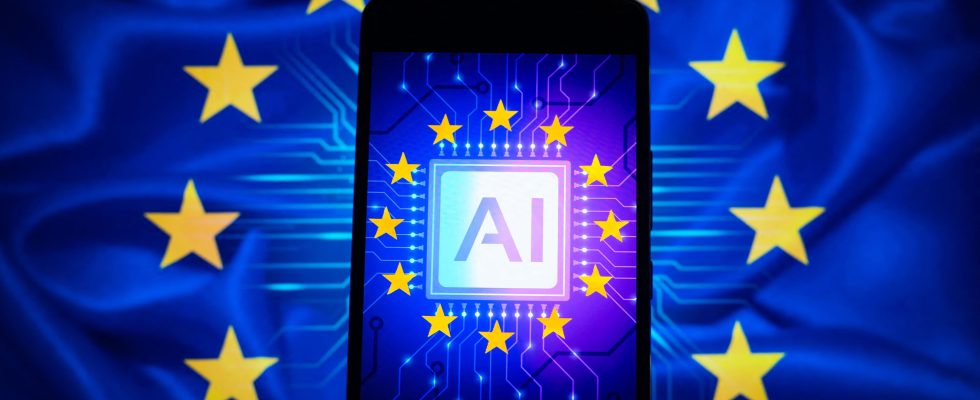From investor Marc Andreessen who posts a photo of euro notes in asking sarcastically which board game they come from, to this entrepreneur warning that a job offer for a fast food restaurant shows a salary three times higher than that of a British nuclear engineer, it has become fashionable in the community American tech, to make fun of Europe. Their barbs are based on recent debates around the European economic disconnection from the United States. “Europoors”, “Europlebs”, the qualifiers are multiplying to describe standards of living which have taken radically different trajectories.
Faced with this, the reaction of several European tech figures was to launch the hashtag eu/acc, to european accelerationism. A movement that echoes effective accelerationism, abbreviated e/acc, this subculture of Silicon Valley, technophile and libertarian, mentioned in these columns a few months ago. European accelerationism, however, has a specific objective. Above all, it is a question of not buying into American propaganda towards Europeans, their supposed aversion to risk, their supposed reluctance to work hard or their lack of determination.
New Palo Alto, a promising concept
While Americans love to talk about their hard work, the reality is very different. The hourly volume in tech professions is, on both sides of the Atlantic, around 50 to 55 hours per week. It was with horror that the Americans discovered the Chinese culture of 996, for six days a week from 9 a.m. to 9 p.m. Furthermore, 55% of American unicorns have at least one foreign-born founder. And Europe – without Russia and Ukraine – is the main region of origin (90), ahead of the Indians (66) and the Israelis (54). The stories that Americans like to tell about the sweetness of life in Europe, which, according to them, would not push people to surpass themselves, are just as fallacious. The United States showcases the social advancement of its successful entrepreneurs, but the reality is very different. More than 60% of these creators went to the most prestigious universities in the country.
It is therefore urgent to combat declinism in Europe. And because symbols matter, the concept of New Palo Alto is worth mentioning. Mentioned in Atomico’s famous European State of Tech report, it is also used by Dealroom. New Palo Alto corresponds to the area accessible by train, in less than four hours, from London, therefore including Oxford-Cambridge, the Ile-de-France region and Amsterdam. This positions it as the second largest tech and higher education ecosystem in the world, with 22 establishments ranked in the world’s top 100. There we would find, according to figures from Saul Klein, famous British venture capitalist, 900 growth companies each posting more than $25 million in turnover.
The status of “European company” in question
The opportunity to recall that the first problem to be resolved remains that of the harmonization of rights in Europe. Isabel Schnabel, of the European Central Bank, recently highlighted that American tech giants have no difficulty prospering in this Byzantine environment. This is correct, but it is because they are giants that they easily cross the barrier to entry represented by the multiplicity of domestic rights. We are going to celebrate 20 years of European company status. Thanks to it, a company can carry out its activities in all member states of the European Union under a legal form governed by community law and therefore common to the different states.
The confidentiality of this status clearly shows that it is insufficient. It is now necessary to consider its version 2.0, as demanded investor Andreas Klinger. An overhaul which would provide the same legal protection for investors, from Portugal to Lithuania, and which would encourage the emergence of market practices. In the United States, the Simple Agreement for Future Equity (Safe) regulates, in one document, all questions related to the financing of young companies in the pre-seed phase.
*Robin Rivaton is general director of Stonal and member of the scientific council of the Foundation for Political Innovation (Fondapol).
.
